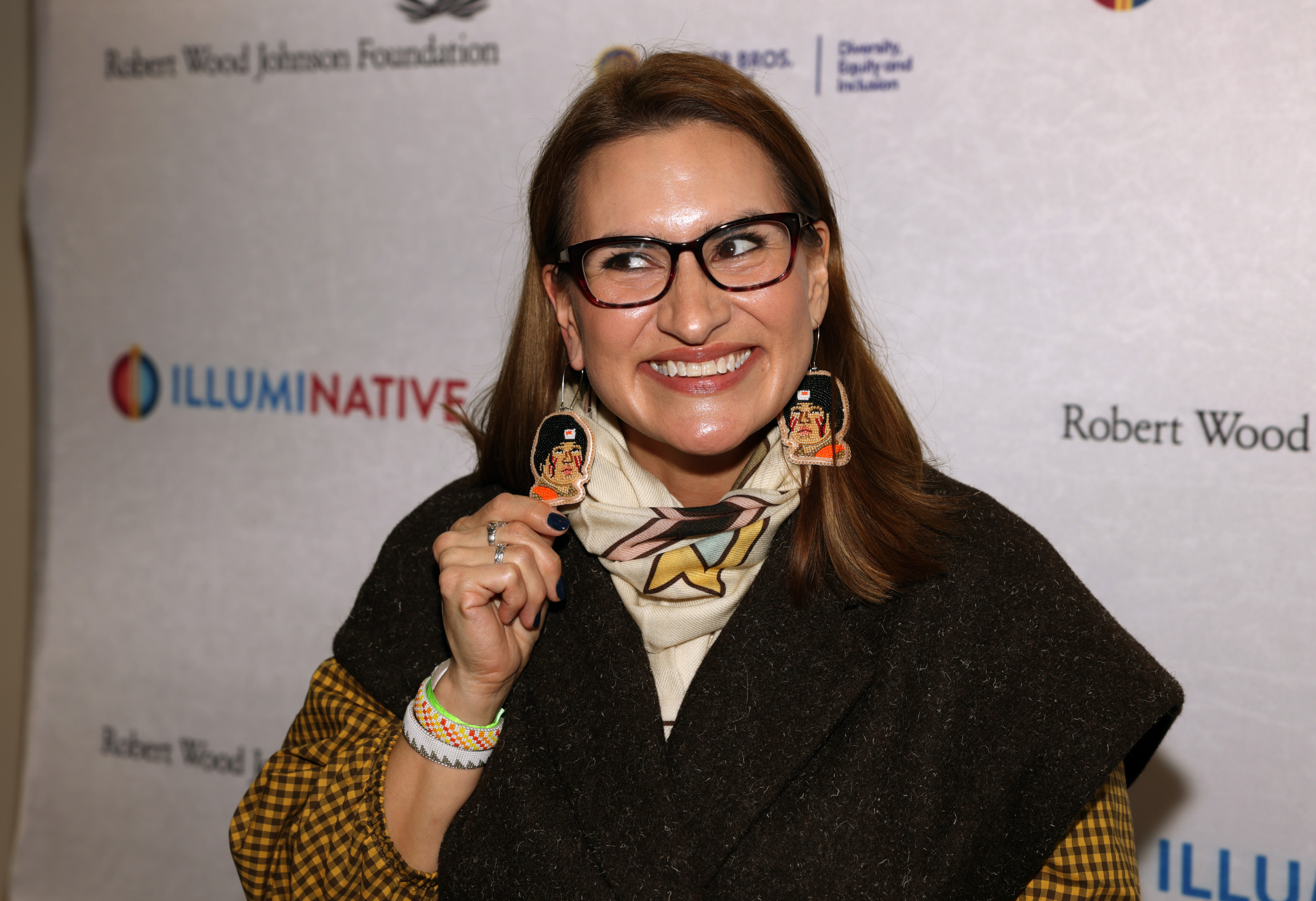Minnesota Lieutenant Governor Peggy Flanagan warned on Saturday how significant Native American votes can be amid this year’s presidential race, stating they can “make or break” elections.
Native American voters have become increasingly recognized as a crucial voting bloc in U.S. elections, particularly in swing states like Arizona, Nevada, and Michigan. Their impact has been seen as significant in previous elections as their turnout has sometimes been the deciding factor in close races.
In Arizona, Native American voters were instrumental in securing victories for Democratic candidates in both the 2020 presidential election and the 2022 midterms. Additionally, their turnout helped President Joe Biden win the state, making him the first Democrat to do so in over two decades. Similarly, in Nevada and Michigan, Native American voters have contributed to maintaining Democratic strongholds.
With a tumultuous election race ahead with Vice President Kamala Harris, the presumptive Democratic nominee and running mate Minnesota Governor Tim Walz, expected to face off against GOP presidential nominee Donald Trump and running mate Ohio Senator JD Vance in November, key voting blocs are emerging as battleground states continue to play a key role in determining the result of this year’s election.
In a Saturday interview with MSNBC‘s The Katie Phang Show, Flanagan, who has served as Minnesota’s lieutenant governor since 2019 and is the highest-ranking Native American official in the United States, discussed the importance of the Native American vote.
“I think Native people are strategically located in swing states across the country and our vote, the Native vote, can make or break a campaign or election. So, in many ways, ignore us at your peril,” she said.
Newsweek has reached out to Harris’ campaign and Trump’s campaign via email for comment.
This comes as Harris, who made history as the first Black and South Asian person to serve as vice president, has continued to reach marginalized communities since announcing her White House bid last month following Biden’s decision to step down from this year’s race as she has made several campaign stops and promises to those communities.
Natasha Campos/Getty Images
Groups such as the League of United Latin American Citizens (LULAC), the country’s oldest and largest Latino civil rights organization, endorsed Harris, the first time in the group’s nearly 100-year history that it has thrown its formal backing behind a presidential candidate. While a group called South Asian Women for Harris organized a call that more than 4,000 women joined.
Trump has also continued to make efforts to reach Black voters including several campaign stops in predominantly Black communities, calling into the Black American Business Leader Barbershop Roundtable at a barbershop in Atlanta, and most recently attending a Q&A session at this year’s National Association of Black Journalists (NABJ) convention.
Flanagan said on Saturday that Native Americans face significant challenges with voting suppression, including issues with voter ID laws, transportation to polling sites, and inadequate voter engagement from political parties.
“There are several folks who have tried to throw obstacles to Native participation by suddenly deciding that tribal ID’s are no longer a valid form of identification, saying that you need to have a physical address and not a PO box when in so many reservations communities that’s not how people live,” she said.
The lieutenant governor added: “It is very clear that there is only one team that is interested in making sure that everyone has access to the ballot box and the freedom to vote, and that is Kamala Harris and Tim Walz.”
According to the Native American Voter Rights Fund, only 66 percent of the known eligible Native American voting population is registered to vote. There are over 1 million eligible Native American voters in the U.S. who are not registered.
Newsweek has reached out to the Native American Voter Rights Fund via email for comment.
These challenges have led to efforts to pass the Native American Voting Rights Act, which aims to reduce these barriers, although it has not yet been enacted into law.
Flanagan, who would become the country’s first Indigenous governor and Minnesota’s first woman governor if Walz is elected as vice president in November with Harris, has continued to make her own efforts in the state including the integration of tribal consultation into state governance, the establishment of one of the first state offices dedicated to Missing and Murdered Indigenous Relatives, and strengthened protections for Native children in adoption processes.
